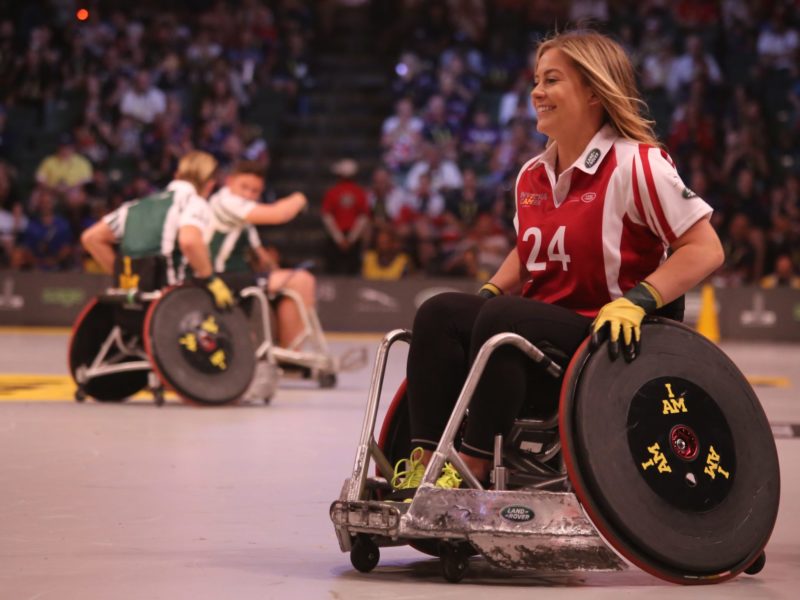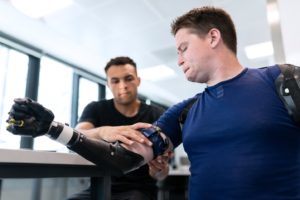Knowing which sort of sports, you can get into as an amputee is difficult, but that isn’t to say that there aren’t plenty of potential options available…
There’s no getting around the fact that there are plenty of barriers in the way of amputees who want to play sports. Aside from the obvious physical challenges, there are also plenty of logistical difficulties to contend with – starting with finding out which sort of sports are suitable.
It’s important to remember that, while it may be more difficult, an amputation does not limit someone from being able to take up, or continue, a sport of physical activity. There is plenty of sporting equipment out there for amputees to try out, alongside prosthetics designed for this. Any hospital negligence claims you make due to your injury can even help provide the funding required for this equipment.
Generally, once you have the means available to you, there are a broad range of sports that are amputee-friendly. Let’s get started!
The Best Sports and Exercises for Amputees
 Cycling
Cycling
Cycling is especially popular among lower limb amputees as it’s a great way of getting fit and, in many cases, can be much easier than walking or running. There are plenty of different types of bicycles that you can use depending on your amputation, including hand cycles for anyone who is unable to ride a regular bike.
You can cycle by yourself, you can go on a trip with friends, or you can join a club local to you!
Swimming
Swimming in a pool is widely considered to be one of the safest ways of exercising, no matter what sort of amputation you have. So long as you have a decent level of proficiency in the water, you’ll be able to reap the benefits.
The vast majority of pools will also have instructors who are specifically trained to teach people with disabilities, such as an amputation. So, if you’re a novice, you can rest assured that you’ll be in safe hands.
Amputee Football

If you have a leg or arm amputation, you may be interested in amputee football. It follows roughly the same rules as the traditional game, with a few distinct differences.
The game is played on smaller pitches with seven players on each side. Outfield players are single-leg amputees and play with two crutches, while goalkeepers are single-arm amputees.
In the UK, there are both competitive and recreational leagues that you can take part in. So, it’s worth taking a look at The FA’s website for further information on how you can get involved.
Sitting Volleyball
Sitting volleyball is exactly as the name would suggest. It’s very similar to volleyball, with the only difference being the fact that all the players are in a seated position, with the net significantly lowered.
Sitting volleyball is considered to be one of the most inclusive sports in the UK, due to the fact that it’s played between mixed-sex teams of disabled and non-disabled players. It’s easy to get into at a recreational level and, who knows, you might have a chance of going on to represent your country at the Paralympics!
Cricket
Cricket has been adapted in a number of different ways, including for those with learning disabilities, visual impairments, hearing impairments and physical disabilities. For amputees, there is wheelchair cricket, walking cricket and table cricket, all of which can be adapted to suit your personal circumstances.
More information regarding disability cricket in England and Wales can be found here.
Badminton
It’s possible for upper-limb amputees to play a traditional game of badminton, due to the fact that the racquet is only held with one arm. While it is naturally more difficult, the accessibility of the game makes it a great option to take a closer look at.
For lower-limb amputees, there are still other alternative options. Wheelchair badminton is due to showcase at the Paralympics for the first time in 2021 and has more and more people taking it up on a regular basis in the UK.
Wheelchair Specific Sports
There’s a long list of sports which have been specifically adapted for wheelchair users. These include:
- Wheelchair rugby (murderball)
- Wheelchair tennis
- Wheelchair curling
While you might not use a wheelchair on a daily basis, these are great sports to get into and offer up a range of different rewarding challenges.
Powerlifting
Powerlifting is pretty much the ultimate form of testing your upper-body strength. It’s unsurprisingly great for building muscle in your upper body and maintaining your strength, and can be suitably adapted if you’re an amputee.
It must be noted that powerlifting can be very dangerous if the correct precautions and techniques aren’t used. So, if you’re interested in getting involved, you should always seek advice and guidance from experts first. Don’t immediately start with the heaviest possible weight!
Yoga
Building up your balance is key as an amputee, but it certainly doesn’t come easy. For that reason, you can give yoga a go!
Some poses will naturally be very difficult, or altogether impossible, but the beauty of yoga is that it’s highly adaptable and can be simplified where necessary. If you really want to get a sweat on, you could also consider giving ‘hot yoga’ a go!
Sailing

What Other Sports Are Available for Amputees?
The list of sports that amputees can play is genuinely endless, thanks to the steps we’ve made with regards to inclusion and representation over the past decade or so.
There are plenty of other sports that aren’t on this list that are available to amputees, so be sure to do a spot of research so you can see which appeal to you. And remember, no matter which sport you dedicate yourself to, enjoy yourself and have fun!
Photo credits:
Photo 1 – ThisisEngineering RAEng via Unsplash
Photo 2 – Wesley Tingey via Unsplash
Photo 3 – Evan Smogor via Unsplash
Interested in eating more healthy for life?
Listen to our friends over at Wellness Force Radio to learn about the “5 Must Have Nutrition Fundamentals”


 Cycling
Cycling





 How Illegal Drugs Can Affect Your Athletic Performance
How Illegal Drugs Can Affect Your Athletic Performance